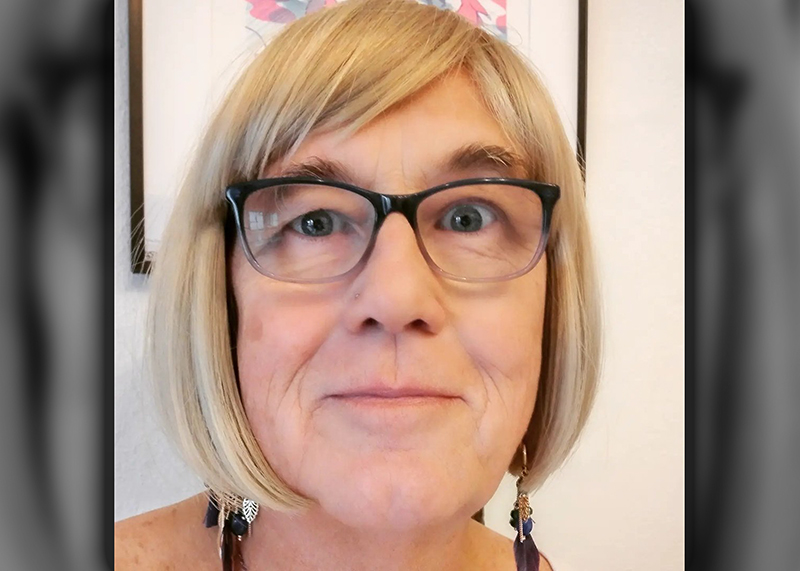LGBTQ advocates deliver letter to D.C. councilmembers calling for sex work decriminalization
Letter, signed by 72 national and local organizations, outlines arguments in favor of decriminalization

A coalition of LGBTQ activists and advocates has dropped off copies of a letter addressed to members of the D.C. Council, signed by 72 different organizations, advocating for a bill that would decriminalize sex work in the District of Columbia.
The coalition went around to councilmember offices this morning to drop off the letter, which outlines supporters’ arguments for why the bill, co-introduced by Councilmembers David Grosso (I-At-Large), Anita Bonds (D-At-Large), Robert White (D-At-Large), and Brianne Nadeau (D-Ward 1), should be passed.
“As lesbian, gay, bisexual, transgender, queer, and allied organizations, we know that the decriminalization of sex work in D.C. is critical to the health and wellbeing of the LGBTQ community, including by improving public health and decreasing the vulnerability of marginalized sex workers, particularly transgender women of color,” the letter reads.
The bill, as currently drafted, would decriminalize consensual sex work for those 18 years of age or older and would create a task force to monitor the implementation and effects of decriminalization and propose any amendments to any statutes relating to penalties for sex work.
The 15-member task force would be composed of the Metropolitan Police Department, public health agencies, human rights advocates, former sex workers, and sex worker advocates. The task force would be tasked with issuing a report containing its findings and recommendations within two years of its formation, and would disband within three years.
“By updating a D.C. law that serves no valid purpose and is dramatically out of step with current research and knowledge, including about how best to combat the transmission of HIV, the bill would improve safety, public health, and law enforcement’s ability to address both violent and property crimes,” the coalition wrote in its letter.
The four key arguments in favor of the bill are that decriminalizing sex work will 1) allow sex workers, particularly transgender individuals who otherwise can’t obtain jobs due to discrimination, a way to make money to survive; 2) decrease the incidence of violence and harassment that sex workers face at the hands of clients, criminals who target sex workers for money, or even police; 3) decrease rates of HIV by allowing transgender people more time and space to negotiate condom use; and 4) allow sex workers to access resources, government benefits, and employment opportunities that they would otherwise be denied if they have a criminal conviction for prostitution.
“Criminalizing a means of survival turns those workers into a target population for victimization and violence,” the coalition notes in its letter. “Policing of the sex trade can turn harm-reduction practices (such as carrying condoms) into evidence of a criminal activity. This often forces sex workers to choose between health and avoiding arrest.
“Additionally, when people engaged in sex work must seek more secluded areas or areas with reduced police presence, threats to physical safety increase and the ability to screen clients decreases,” the letter continues. “…Because sex workers fear arrest, they are more likely to rush the decision to take a client and less likely to negotiate condom use.”
The activists also cite statistics from a DC Trans Coalition survey that found that 78% of sex workers fear violence, harassment, arrest, or humiliation at the hands of police, and about 20% report that police officers have approached them and demanded sex in order to avoid arrest.
“Transgender women of color in D.C. are frequently profiled as sex workers, whether they participate in the trade or not, which often leads to harassment, confiscation of condoms, and arrest,” they add. “This chronic and often wrongful suspicion leads to general distrust of police by many LGBTQ people. This distrust could be significantly reduced through decriminalization of sex work.”

The letter comes ahead of a scheduled Oct. 17 hearing before the D.C. Council’s Committee on the Judiciary and Public Safety, where Council members will hear testimony from community stakeholders in favor and against the bill.
Some of the letter’s signatories include: the American Civil Liberties Union; Asian and Pacific Islander Queers United for Action; Black & Pink; the D.C. chapter of Black Youth Project 100; Brother, Help Thyself; Casa Ruby; the Center for Black Equity; Collective Action for Safe Spaces; the DC Anti-Violence Project, GLAA; HIPS; the Human Rights Campaign; LULAC Lambda; the National LGBTQ Task Force Action Fund; No Justice No Pride; Sex Workers Outreach Project; SMYAL; The DC Center for the LGBT Community; Transgender Law Center; Us Helping Us, People Into Living; the Wanda Alston Foundation; Whitman-Walker Health; and the Woohull Freedom Foundation.
The coalition partners who are pushing for decriminalization is hoping to marshal people to testify before the Council on Oct. 17, and, following the hearing organize supporters to place pressure on D.C. councilmembers to pass the bill, and on Mayor Muriel Bowser to sign it into law.
“Our ultimate goal is to address the needs of LGBTQ people in the city, and part of that involves getting sex work decriminalized in the city. We want to make sure low-income LGBTQ people have their basic needs met for housing, employment, education,” says Tyrone Hanley, senior policy counsel for the National Center for Lesbian Rights, which supports the decriminalization bill. “We know that this is not the only thing that is needed to ensure that LGBTQ people are able to have vibrant lives here, but we know that this is a necessary element to getting to that goal.”
Hanley notes that, particularly with similar bills introduced during past Council sessions, there have been misconceptions that an overwhelming majority of D.C. residents are vehemently opposed to decriminalization and to sex work in general. But he says the on-the-ground organizing efforts by members of the DECRIMNOW campaign have revealed that there is more support in the larger community — it’s just they don’t necessarily show up during Council meetings to make their views known.

To that end, the groups involved in the DECRIMNOW campaign, the brainchild of the Sex Worker Advocates Coalition, have been attempting to educate D.C. residents about the importance of decriminalization, and have collected several hundred signatures on a petition in support of the bill.
The social justice organization No Justice No Pride has previously been organizing people to send letters to the Council demanding a hearing, and now that one has been scheduled, have been organizing a letter-writing campaign for residents in Wards 2, 3, and 7 to petition Councilmembers Jack Evans, Mary Cheh, and Vincent Gray — all of whom sit on the Judiciary Committee and have not stated support for the initiative — to support the decriminalization bill.
“SWAC has been very intentional about reaching out to a diverse group of communities to have conversations with everyone about this issue,” says Hanley. “It’s not just an LGBTQ issue, although it has very specific implications for the LGBTQ community. The coalition, under the leadership of BYP 100’s D.C. chapter, and HIPS, have been leading an effort to articulate conversations in Wards 7 and 8. What we’ve found through those one-on-one conversations is there’s actually a lot of support for this bill.”
Faith, one of the co-organizing chairs of BYP 100’s D.C. chapter, says coalition members have been engaging in one-on-one conversations to try and shift people’s understanding of what the implications of decriminalization would be.
“I think especially black people who have had experience with the justice system, or have family who’ve had experience with the system, they know, and it’s easy for them to understand, that when you arrest people, it’s not improving their material conditions in any way,” she says. “So when we say, ‘We want Council to focus on jobs, education, housing,’ when you arrest someone, you are further marginalizing them.”
Faith says the coalition has been holding in-person and virtual meetings to educate people about the decriminalization initiative, and will be holding a virtual event on the evening of Oct. 14 to train people who wish to testify at the Judiciary Committee hearing on how best to express themselves. She adds that the coalition will be doubling down on its efforts to pressure the Council to take action after the hearing.
“We really want to keep the momentum up after the hearing, so that it gets to a vote in the Judiciary Committee, and then gets brought to the Committee of the Whole,” says Faith. “So we need people to write to their councilmembers, call in, and remind them that people are watching and that we want this to be voted on soon.”
Read more:
Transgender sheriff’s deputy sues Georgia county over health insurance exclusion
DC’s rideshare drivers more likely to cancel on LGBTQ, black riders
Tennessee teen dies by suicide after being outed by classmates
Support Metro Weekly’s Journalism
These are challenging times for news organizations. And yet it’s crucial we stay active and provide vital resources and information to both our local readers and the world. So won’t you please take a moment and consider supporting Metro Weekly with a membership? For as little as $5 a month, you can help ensure Metro Weekly magazine and MetroWeekly.com remain free, viable resources as we provide the best, most diverse, culturally-resonant LGBTQ coverage in both the D.C. region and around the world. Memberships come with exclusive perks and discounts, your own personal digital delivery of each week’s magazine (and an archive), access to our Member's Lounge when it launches this fall, and exclusive members-only items like Metro Weekly Membership Mugs and Tote Bags! Check out all our membership levels here and please join us today!



























You must be logged in to post a comment.